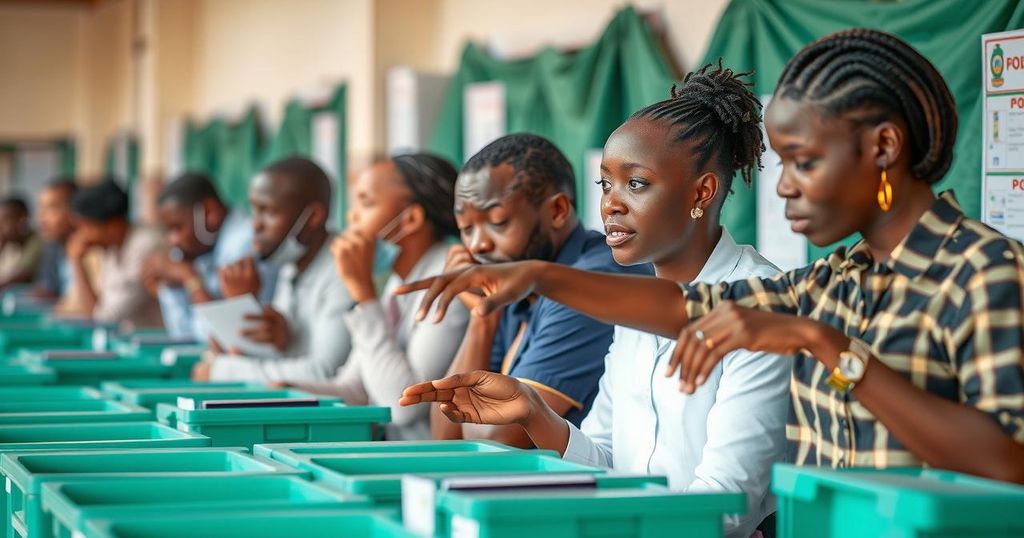Ghana Holds Crucial Elections Amid Economic Challenges and Political Stakes

Ghana has opened polls for a crucial general election amid economic troubles. Vice President Mahamudu Bawumia and former President John Mahama are the leading candidates. With approximately 18.8 million registered voters, issues of economic stability, illegal mining, and regional security dominate the electoral discourse. This election tests Ghana’s democratic robustness given its historic political stability.
Polls have officially opened in Ghana as the nation embarks on a pivotal general election, which will serve as a litmus test for its democratic integrity amidst an economic crisis. Voting commenced at 7 AM GMT and is set to conclude at 5 PM GMT, with preliminary results anticipated on Sunday and comprehensive results for the presidential election likely by Tuesday. The election is characterized by a critical race between Vice President and former central banker Mahamudu Bawumia and opposition leader and former President John Mahama, both hailing from the historically marginalized northern region of Ghana, influencing the electoral dynamics.
President Nana Akufo-Addo, who is completing his constitutionally mandated two terms, will not seek re-election. The new parliament will also be elected during this cycle, with approximately 18.8 million registered voters participating in the polls out of a total population of 34 million, historically exhibiting a turnout of around 70 percent.
In a bid to maintain electoral integrity, Ghana’s government has temporarily closed all land borders from Friday night through Sunday. The prevailing discourse around the election revolves around the struggles of the economy, which has faced debt defaults, high inflation, and ongoing negotiations for a $3 billion International Monetary Fund (IMF) bailout.
While Mahamudu Bawumia aims to leverage his economic expertise and promises of digitalisation and expansive education and health initiatives, John Mahama is advocating for a “reset” of Ghana’s economy, including the implementation of a 24-hour economy and the renegotiation of terms with international creditors.
Furthermore, issues such as illegal gold mining and the repercussions of regional instability from neighboring nations also feature prominently in the electorate’s considerations. Ghana’s commendable history of political stability is further put to the test, particularly in light of recent unrest within the parliament, which is illustrative of the growing tensions within the political landscape.
Ghana is frequently hailed as a model of democratic stability in West Africa. Since the restoration of multi-party democracy in 1992, the country has seen its two main political parties, the New Patriotic Party (NPP) and the National Democratic Congress (NDC), alternating in power. However, both parties have faced significant critiques regarding their performance and the management of Ghana’s economy. Currently, Ghana grapples with socioeconomic challenges, including high inflation, a debt crisis, and ongoing negotiations for international financial assistance. This election comes at a critical juncture for the nation, reflecting broader regional trends of political volatility and civic unrest.
Ghana is currently undergoing a significant electoral process that not only determines its next leadership but also serves as a testing ground for its democratic foundations during economically challenging times. The high stakes involved, paired with the potential for political change, suggests that the outcome of this election could have lasting implications for both the nation’s governance and economic recovery efforts. In navigating these challenges, the electoral process remains a testament to the resilience of Ghanaian democracy, even amid external pressures and regional instability.
Original Source: www.aljazeera.com







